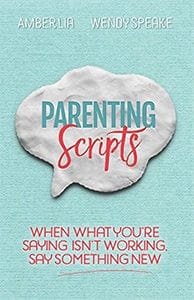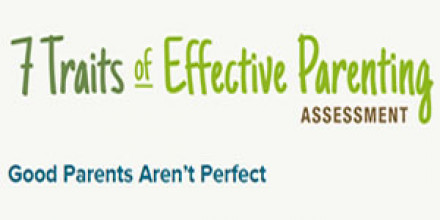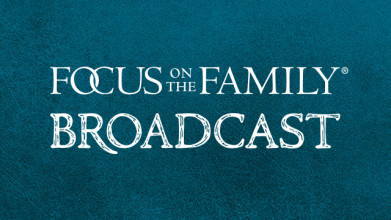Preview:
Amber Lia: Sometimes we need to have our own internal scripts. We write about that in the book, too. And sometimes the internal script that I have when – in the store when my kids are not behaving is, “Their behavior is not a reflection of me. It’s not a reflection of me.”
End of Preview
John Fuller: That’s so good to remember. Your child’s behavior is not a reflection of your parenting skills. That’s a reminder from Amber Lia, and you’ll hear more from her today and also Wendy Speake. They’re gonna offer some practical responses that you can have for when your child misbehaves, including prepared scripts. This is Focus on the Family. I’m John Fuller, and your host is Focus president and author Jim Daly.
Jim Daly: I like that idea of prepare, John. It’s almost like the battle plan. It’s the – you know, of parenting. You’ve got to – you’re the general, you’re the parent. You gotta put that plan together to think about how this is gonna go. And usually when you have that kind of plan it goes far better than when you don’t.
Amber: Sure.
Jim: And man, last time we had a great discussion about the Parenting Scripts – which is the title of the book we’re talking about, last time and today. If you missed it, you got to get it. Bedtime battles – you having any of those. This will help. Or sibling rivalry or disobedience – what parent doesn’t experience this, Christian or non-Christian? And that’s one of the wonders of the great topics we get to cover here.
John: Mm-hmm.
Jim: Today we want to delve into more of those topics and give you those tools to help you do the best job you can do in raising your kids. Why? So they can honor the Lord. I mean, that’s the goal here: draw closer to Him, have a life of commitment to Him and love you as their parents along the way. What parent doesn’t want that? Here at Focus, that’s our goal. It’s that simple. And so grab that cup of coffee or tea, sit back. Let’s have a great discussion about parenting more effectively.
John: Mm-hmm. And if you didn’t get a chance to listen last time, please just stop by the website and get the instant download and a copy of the book – focusonthefamily.com/broadcast. So I said our guests are Amber Lia and Wendy Speake, and they’re busy moms. They have I think, seven boys between the two of them.
Amber: Yep. That’s right.
John: And they live in California. They’ve written a great book. Jim, you mentioned the title – Parenting Scripts. The subtitle is When What You’re Saying Isn’t Working Say Something New.
(LAUGHTER)
Jim: It’s – that makes a lot of sense. Why is it so hard for us as parents to do that? Ladies, welcome back to Focus on the Family.
Amber: Thank you.
Wendy Speake: Thank you. You know we love being here.
Amber: We’re glad.
Jim: Well, people responded. There was so many questions, emails. It was great. And we’re coming back again today. Let’s start with that idea of the script.
Wendy: Yes, just being prepared.
Jim: What is it? Give us a practical definition. What does your parenting script look like?
Wendy: Right. I think there was a season where I said, “The only thing I’m consistent at is being inconsistent.” And I think that sometimes parenting is like throwing spaghetti at a wall to see what sticks. It’s like, “Well, that stuck.” And but – like we talked about bedtime battles and nap time. And one day you crawl into bed and tickle their back and fall asleep with them. The next you threaten ’em, the next you bribe em’, the next you spank ’em. And there’s no consistency. And anything that I’ve wanted to do well in my life I had to have a plan. And yet every day we wake up and we go at it again. And come evening and you’re crying about how ya were blaming and shaming and negative with them and having a nasty face at ’em. And you’re surprised! But you didn’t prepare to do it any differently than you did it the day before. And I just remember – I might have even shared this when we were here last year with you – that I remember my husband one night said “Honey, just go to bed. God’s mercies are new and they’re waiting for you tomorrow.”
Jim: That’s a good Word.
Wendy: And I think I yell-cried at him.
Amber: Mm-hmm.
Wendy: “But I’m just going to pick up those new mercies and do the exact same thing I did today!” And that was when a switch started flip for me.
Jim: Yeah.
Wendy: Is “Oh, if I want to do something different tomorrow, then I have to do something different.”
(LAUGHTER)
And I have to be prepared to do that…
Amber: Yes.
Wendy: …different thing because we’re so surprised. We’re surprised that they do wrong, even though they do the same wrongs consistently.
Jim: Yeah.
Wendy: And I’m surprised that I keep doing wrong even though I’m doing the exact same wrong things – or variations of the wrong things. And we used that term stuck in a rut last time. And you do. You just get into this well-worn pattern of wrongdoing. And one thing that Amber and I say often is “Our kids are going to do wrong and we can still do right.” But you’ve got to prepare to do right when your kids do wrong. And in preparing to do right when your kids do wrong, you’re actually modeling right…
Jim: Yeah.
Wendy: …For them, and you’re inviting them up into right living. And so this is really our invitation to say, “Okay, we’re gonna focus on the kids in this book too, but we want to invite you to focus on right responses and invite them into right responses.” I oftentimes think of that verse – it says, “Create in me a clean heart, oh God, and renew a steadfast spirit within me. Cast me not away from Your presence, take not Your Holy Spirit from me.” But then it goes on to say, “And then I will teach transgressors %our ways.” And so often I think parents, we want to go straight into teaching transgressors…
Jim: We do though.
Wendy: …their ways.
(LAUGHTER)
But we don’t first come to God and say, “Okay, create in me a clean spirit. Do a work in me, God.”
Jim: That’s convicting.
Wendy: “Let me slow down, sit down and let You do that work with me.” And then, “This is a new day, you’ve got new mercies for me now. Now that I’m right with You, teach me how to respond right when they do wrong.”
Amber: Yeah, the foundation of all of these scripts really is that “I am not able to respond rightly when I’m empty spiritually.” And so that’s what Wendy’s sharing. It’s like we have to go to the Lord ourselves as parents and say, “Lord, I keep saying and doing the wrong things, and I need Your help.” So we start there. You know, “create that clean heart in me.” You know, “Help me to be full spiritually so that what flows out of my mouth is coming from a heart that’s filled with Your loving kindness and Your fatherly example to me as I mother or father my children.”
Jim: Yeah.
Amber: Yeah.
Jim: And certainly one of the clear things that you’re saying is you’ve got to find some time, busy mom – and this applies to dad too – but certainly busy mom, running around, doing everything, maybe working outside the home as well as with the kids and all.
Amber: Right.
Jim: Make time, even if it’s 10 minutes, just to stay in the Word.
Amber: Yes.
Wendy: Yes.
Jim: And read the Word. I’m hearing that quite clearly. You gotta get that restorative time.
Amber: And really apply that to your parenting…
Jim: Right, right.
Amber: …So that you’re not defaulting.
Jim: ‘Cause that can feel overwhelming too.
Amber: It can.
Jim: ‘Cause, man, there is so much I’m trying to get done.
Amber: Yeah.
Jim: Everything. Think of all the household stuff, plus the kids, plus try to find 10, 15 minutes to…
Amber: That’s right.
Jim: …Settle my heart with the Lord. That can be hard – and read His word.
Amber: I think that’s what’s good about these parenting scripts is…
Jim: Right.
Amber: …They are really consumable. You know, they’re short and sweet…
Jim: Yep.
Amber: …You know, kind of pithy statements. They’re all based and related to some scripture. You know, so they have that biblical context. And they’re not hard for us in the heat of the moment to remember and recall them.
Wendy: Right.
Amber: And all of them – really, they’re just a springboard for parents. I use some of the ones that Wendy has written verbatim often…
John: And that’s legal?
Amber: …Because they’re so good.
(LAUGHTER)
Jim: She uses them.
Wendy: Copyright 2000…
Amber: In my home with my children, I use them over and over again.
Wendy: Right. Which is your favorite one to use that I wrote?
Amber: My favorite that I use all the time of Wendy’s is, “Your heart should be so full of all the yeses I’ve given you.” That one that you – that’s my favorite.
Wendy: We talked about that last time, yes.
Amber: And then, “You do you,” which is another one maybe we can talk about. But those are a couple of my favorites.
Jim: Yeah. Well, let’s get to some of them.
Amber: Yeah.
Jim: That’s what people, I’m sure, are on the edge of their seat.
Amber: Right.
Jim: Moms saying, “Help me. Help me.”
Amber: Yeah.
Jim: Let’s go this way. Amber, at one point or another, our child is going to say something that hurts our feelings as moms.
Amber: Yes.
Jim: You know, “I don’t love you.” “You never do it right.” Whatever it might be. Mommy, fill in the blank.
Amber: Right.
Wendy: Yeah. Amber, this is my favorite of yours, by the way.
Jim: And every mom listening gets this. They’re gonna…
Amber: Right.
Jim: …Connect at the heart level…
Amber: That’s right.
Jim: …Because moms want not only to love and to nurture…
Amber: Yeah.
Jim: …They want to be loved.
Amber: Yeah.
Jim: And when that little child or that…
Amber: Right.
Jim: …You know, tween or teen says…
Amber: That’s correct.
Jim: …Something cutting – boom. What do you do?
Amber: It just cuts you to the quick. I mean, when you hear it – because after all, as parents, you’ve given them so much. You know, you have poured your life into them. You provide for them. You try to do the right thing. And then, in this one moment, they’ll tell you that they don’t love you anymore?
Jim: Right.
Amber: You know that they’re mad at you, that you’re not a good mom. They wish they had somebody else as their dad or whatever. Those things can really wound…
Jim: Yes.
Amber: …A mom or a dad. And I remember very vividly a moment when my son said some of those kinds of things to me. And I immediately went to this place of, “Oh. How could they say that to me?” And then in the next moment, I had a flashback of, “Amber, you’ve said those same things to your mom…”
Jim: When you were a teenager?
John: Oh.
Amber: “…When you were little. You know, when you were a teen, when you were a toddler, you said…”
Jim: Yeah.
Amber: “…Those same kinds of things.” And I remembered that I didn’t really mean them. I was just so frustrated. And so my parenting script in that moment with my own son was, “Well, I don’t think you mean that. I don’t think you mean that.” And it really – I could see his body just relax.
Wendy: It takes the fight right out of ’em.
Amber: It took the – and it – he was relieved because he didn’t know how to say what he wanted to say. He was frustrated and angry and upset. But he really did still love and care for me. And I knew that. I needed to remove sort of that personal martyr, victim piece from my parenting and that emotion and just remind myself and him, “Son, I don’t think you mean that. I think you really do love and care for me. But I understand that you’re frustrated right now, so let’s both take a break and come back together maybe in a few minutes when we can be calm. And we can talk this out and figure out a plan for moving forward, whatever the conflict is,” instead of then getting embroiled in a battle of words and me wounding him back and him wounding me and me licking my wounds. That wasn’t going to do any of – either of us any good.
Jim: You know, Amber, one of the things you said there that I caught was this idea that you’re raising sinners. I mean…
Amber: Right.
Jim: …We tend to forget that. We have a high level of expectation, as Christian parents particularly…
Amber: Yeah.
Jim: …That our kids, because they’re our kids and we walk with the Lord, will be better.
Amber: Right.
Jim: They won’t sin. And they are sinners. And we forget that…
Amber: Yeah.
Jim: …Or we don’t know how to translate that. It’s also one of your scripts when your children sin.
Wendy: Yes.
Jim: And it’s not if, it’s when. And it’s part of this life. And the irony is we try to keep them from that bad behavior rightly. But the Lord will use sin in their life to teach them…
Amber: That’s right.
Jim: …Because it’s that great scripture of suffering leading to endurance, leading to character, leading to hope. Sin has a role in shaping us, hopefully for good and not for ill. So what about that next script of children who sin?
Wendy: When your children sin – when they sin.
Jim: Yeah, not if.
Wendy: Well, that’s one of my favorite conversations because this is really the heart of what I long for in my child’s life is salvation. And what – it dawned on me one day, you cannot have salvation without sin. You cannot have the gospel of Christ at work in our lives without sin. So if you go through those verses that all of us have sinned and fallen short of the glory of God and the wages of sin is death, but the gift of God is eternal life and that we need to confess our sins. And He will be faithful and just forgive us. I mean, this is the gospel. We want salvation for our children, we just don’t want them to do anything that requires them being saved.
Jim: Right.
Wendy: You know? We don’t want them to mess up. We want them to avoid the pain of it, the embarrassment of it. We want them not to sin. And yet it’s only through sin that we receive forgiveness. And that really helped me. And I’m glad that I learned it when I did, right on the brink of my oldest becoming a teenager. Because if you have older children, you know that they sin when they’re little, but as they get bigger, their sins get bigger. Their sins get kind of “sinnier” you know?
Jim: And they feel more adult – the pain of it.
Wendy: And the pain gets deeper.
Jim: They know. They’re rational now.
Wendy: Right.
Jim: After about 10, they’ve got really good, uh, skills.
Wendy: Right. And I remember the day where I realized that my – being there for my child when they sinned was a privilege.
Jim: What happened?
Wendy: Oh, this is one of those stories where I have to be careful of details ’cause he’s older. And it is his story.
Jim: Okay, protect him.
Wendy: But I’ll tell ya, we got a call from school. And he did something bad. He wrote a bad word on the side of the desk.
Jim: Okay.
Wendy: I’d never even heard my child say a bad word.
Jim: Right.
Wendy: I’ve not heard anyone say a bad word while I was with my child.
Jim: Right.
Wendy: And, um – but, like, it was a bad bad.
Jim: Okay. Got it.
Wendy: If there’s a ranking of bad words, this is one of the bad ones. Um, and I went, and I picked him up. My husband, actually, is the one that got the call from school. And he called me ’cause he was out of town – said, “You need to go pick him up. But I’m coming in. I’ll be home just an hour or so after you guys get home. Don’t even talk to him about it. Let me.” So I picked him up and I was shocked, of course. And he gets in the car. I said, “We’ll talk when your dad gets home.” And it wasn’t, you know, it wasn’t a threat, though. I wasn’t…
Jim: Right.
Wendy: …”You wait till your father gets home.” It was a “We need your dad here to talk this through.” And he just started crying in the car. “I need to talk now; I need to talk now.” And I said, “I’m not ready.” So we went home, and he went to his room, and he closed the door behind him, and he was weeping. And he kept saying, “Mom, this is too much for me to handle alone.” Like, I get choked up when I remember it. And I remember it hitting me. It is a privilege to walk with my children through sin to forgiveness. And I know that many of your listeners, they have little ones. And – but if we can catch that vision when they are young, there must be sin for them to experience forgiveness. So one of the things I said to Caleb when I did go in was, “Do you remember the day that you accepted Jesus as your Savior?” He said, “I remember it so clearly.” He was 4 and he told me the story. As a 14-year-old, he looked back and told me the story. And I said, “Yes, and do you remember what you did that day that was so sinful?” He said, “I yelled no, and I kept getting out of bed at nap time.”
(LAUGHTER)
Wendy: I said, “Caleb, that wasn’t a really awful sin. I mean, it felt bad in the time.” This – like if there’s a ranking, this is ‘sinnier,’ right? But that – that you were forgiven for at 4 was just a picture of all that God had already forgiven you for in that moment. So this has already been forgiven for. Now you get to rededicate your heart to accepting the salvation that Christ came to bring. And then you get to allow that to transform your behavior and to walk like it’s true.”
Jim: Yeah.
Wendy: And, you know, tears on both of us, where we got to accept forgiveness that Christ had given to him. And what a joy to have that privilege with my child in our home. And yet, man, don’t we just want to blame and shame our kids when they do wrong?
Jim: We do. And part of the issue there – it’s wonderful he had that heart of response. And not every child will have that. I mean, it may have been the presence of the Holy Spirit in his heart to be able to convict and he responded because he had that. And, you know, there was that conviction, that weight, of “What have I done? Why have I done that? I gotta to talk now.”
Wendy: Yes. But when we’re prepared – when we’re prepared with a script, way to end – your script might even be a reminder to yourself, “This is sin. I need sin to lead him to, um, forgiveness.” But when we’re not ready to understand what sin is, we come running in with our barrels just blasting at ’em, right? And we usurp – we thwart the teachable moment ’cause we come in angry at their sin. And the Word of God says so clearly, “It is the kindness of the Lord that has led us to repentance.” Could it be the kindness of a mother…?
Jim: Yeah. Wow. Yeah.
Wendy: …That gives space
Jim: It’s the Lord in you.
Wendy: for the Holy Spirit to lead my son to repentance?
John: Well, I appreciate so much, the perspective that Amber Lia and Wendy Speake are bringing to us today on Focus on the Family. And a lot of what we’re covering is in their book, Parenting Scripts: When What You’re Saying Isn’t Working, Say Something New. We’ve got that book and a CD or download at focusonthefamily.com/broadcast, or call 1-800, the letter A, and the word FAMILY to make a donation and to get those resources.
Jim: We mentioned silence, and I want to make sure we capture that, the power of it – certainly age appropriate, obviously. But there is power in silence and…
Wendy: And not the silent treatment.
Jim: Not silent treatment, yeah, I think we all know that in marriage that’s not healthy either. But sometimes you go there for whatever reason – protection, et cetera. But speak to the silent side of it and how you can work with the Holy Spirit. And – but it’s hard, as parents, ’cause we do want to lecture.
Wendy: Well, I’m prone to lecture.
(LAUGHTER)
Um, lots of words.
Jim: Yes.
Wendy: And lots of words every day. And lots of words at every time they do anything even remotely wrong. And I’m a communicator. It’s what I do. And so my kids get lots of communication from Mom.
(LAUGHTER)
Wendy: But I learned that my kids are smart.
Jim: Mm-hmm.
Wendy: My kids know when they’ve done wrong.
Amber: Mm-hmm.
Wendy: They know, actually, what a better response would have been.
Jim: That’s usually why they’re defensive, I’ve learned in my parenting.
Wendy: Yes. So if I would just be quiet – and I call it a silent script. And I can do it in the car when the kids are just at each other. If there is a safe place, I can pull over and park the car. And that doesn’t mean I’m taking off a shoe and throwing it over my shoulder at them or anything like that. Like, I can just wait and maybe there are a few words. “Guys, I’m just going to wait until you guys can calm it down and bring it down in the car.” And just wait because they don’t need to me to tell them that their behavior in the car is wrong. They don’t need me to tell them when they’ve been disrespectful to me. They don’t need me to tell them that they have dishonored their father or been rude to their brother. They actually know it when I give them a chance to experience repentance.
Jim: Right. And what I like about that is you’re teaching them self-regulation.
Amber: Right.
Wendy: Yes.
Jim: ‘Cause I think one of the mistakes that parents make – I’ve made it – you over-parent.
Wendy: Yes.
Jim: And they’re waiting for you for the direction.
Amber: Right.
Wendy: Well, and then, it becomes about us. You know, they’re like, “When Mom goes into a big lecture,” it’s – I’m making it about me.
Amber: And now the kids can be mad at me instead of really thinking about the wrong that they are doing.
Jim: Okay. Let’s move to another one ’cause we’re knocking these down. There’s 30 in the book. We’re gonna cover…
Wendy: And I do want to say, they are very short chapters because we recognize that – speaking of, we have smart kids. We got smart moms and dads that read this. As soon as we say bedtime battles, they know exactly what that looks like. We don’t need to paint a picture and we say in our home, here are some of the things. This is what God’s word says. So they are um, you know, they’re a couple of pages and they’re applicable for that day.
Jim: Yeah, the point for me, is we’re going to cover like six or seven in two days.
(LAUGHTER)
So I want to make sure we’re putting enough out there that the parents can get a handle on it. And again, as John has said, just contact us to get the book or go to the website, et cetera. So, um, the next one is when their tone of voice is angry, rude, or whiny. Now, we’ve never experienced that, ever.
Amber: Really?
(LAUGHTER)
Man, I’d like to spend more time at your house.
Jim: Angry – I love this: angry, rude, or whiny. It’s so true.
Amber: Right.
Jim: And there’s lots of reasons for that, isn’t it?
Amber: There’s many reasons for being angry, rude, or whiny. You know, that’s, I think, a common, common issue in so many homes today. And really, again, it’s about, as parents, having that plan, having that self-control, so that we don’t just get totally exasperated. For me, that whiny, rude tone of voice is exasperating. I just throw my hands up in the air. Like, I can’t even have a normal conversation with you because you’re not speaking to me in a normal tone of voice.
Jim: It’s a trigger.
Amber: It’s a trigger.
Jim: They are pushing your button. That’s what we say about that.
Amber: That’s right. It’s a total button pusher.
John: And they’re using it and they know it, too.
Amber: That’s right. So for me, I have to say to them – I have to, again, pause for a second and say, “Son, how could you say that differently?” You know, with a smile and the tone of my voice and a gentle smile even on my face. “Son, how can you say that differently?” Because he knows I’m here. I’m ready to listen. I want to hear what his grievance may be or his request or whatever thing he wants to try to express about his sibling to me. But if I allow him to keep being whiny and complaining and rude, then he’s gonna continue to be whiny, complaining and rude, so…
Wendy: Or if you join him in the whining thinking it’s gonna make him stop whining…
(LAUGHTER)
Jim: Stop whining!
Wendy: And join him in anger, thinking it’s going to make him not anger…
Amber: And that’s worse because, again, I’m trying to model for my children. You know, that’s what good coaches do. You know, they set them up for success, they model things, they train them. And so I take all of these moments as these modeling moments. And so I say to him, “Son, how could you say that differently? How could you soften your voice?” And sometimes, they’re really worked up. So the first thing I even will say is, “Hey, breathe. I’m listening. But how can you say that differently?” And, sometimes, they’re still in such a tizzy, they don’t even know how…
Jim: Yeah.
Amber: …To say that differently. So I will help them do that. I’ll say, “Did you mean to say it like this?” And then I will say it in a very nice, respectful tone of voice without the – and I say, “When you say it like this, then I can hear you, and we can have a solution together.”
Jim: That’s good. I think I’ve defaulted on that. I’ve never considered it a parenting script, but we call it the do-over.
Amber: Yeah.
Wendy: Yes.
Jim: You know, that’s kind of the same thing.
Wendy: Well, I was going to say…
Jim: “Hey, whoa, everybody.”
Amber: “Try again.”
Jim: “Let’s do a do-over here.”
Wendy: “Let’s try that again.”
Jim: “That’s not how you…”
Amber: “Let’s try that again.”
Jim: Right.
Wendy: And it becomes about behavior – not just about words.
Jim: Yes.
Wendy: You know?
Amber: Yeah.
Wendy: If I say, “All right, guys. It’s Friday night movie night. Dads got a movie cued up.” And the boys come out of wherever they are, and they start fighting over, you know, that seat that you have – like, the one seat in the family room that’s like, the best seat for watching the movie?
Jim: Yes.
Wendy: And they immediately dogpile on there…
(LAUGHTER)
And they’re screaming. And this was supposed to be a wonderful experience.
Jim: Yes.
Wendy: You can call a do-over then. And I will actually say, “Everyone, back to your rooms.” And you can even say it with a smile. “That didn’t work,” you know.
Jim: Yeah. They’re going, “Mom, what?”
Amber: “Try that again.”
Wendy: “What was a better way you could have come out?”
Jim: You might hear a little whining there…
Amber: Yeah.
Jim: …Won’t you (laughter)?
Wendy: Right?
Amber: And can I just say, too, that, for any parent that is feeling, like, overwhelmed that, “Gosh, I never say the right thing. I’m feeling so guilty right now.” This script applies to us.
Jim: Well, that’s where I was gonna go.
Amber: I have stopped myself…
Jim: Yes.
Amber: …In the middle…
Wendy: Do-over.
Amber: …Of responding wrongly and rudely…
Jim: Yeah.
Amber: …To my own child and said, “Wait a minute. I’m sorry for speaking to you that way. I need to stop for a second and try again.” You know, and so it’s a script that I apply to myself…
Wendy: Yes.
Amber: …Often as well.
Jim: Well – and it fits with where we need to end today, and that is the negative self-talk that we do…
Amber: Yeah.
Jim: …As moms particularly but dads too. But, you know, moms have an incredible capacity for negative self-talk…
Amber: Yeah.
Jim: …Because they own so much…
Amber: Yeah.
Wendy: Yes.
Jim: And they feel the ownership.
Wendy: I’m so glad that you chose…
Amber: Yeah.
Wendy: …This one to talk about. One thing that I found in my own life is that when I have negative self-talk, those negative words come out of my mouth. They tumble out of my mouth. And I remember once folding clothes, and I was, like – and the words – and this is embarrassing to confess but, “I hate this.”
(LAUGHTER)
“I hate this.”
Jim: That’s not embarrassing.
Wendy: No, I meant, like, “I hate it all.”
Jim: Yeah.
Wendy: I don’t hate the laundry. Like, I hate this experience that I’m having…
Jim: Yeah.
Wendy: …Right now as their mom.
Jim: Lots of moms are saying, “Amen, sister.”
Amber: Yeah. That’s right.
Wendy: And so if my internal conversation with myself is, “I hate this,” then when they come in and need something from me, I can’t have external words that aren’t laced with “I hate this.” And so when my internal words change, it’s a privilege. And I’m tired, but I will not grow weary in doing good…
Amber: Yes.
Wendy: In due season, I will reap the harvest.
Jim: Let me ask you because that is so good. What’s under that – the “I hate this?” I mean, what are you really…?
Wendy: I think exhaustion.
Amber: Weariness.
Jim: …Feeling there? Yeah.
Wendy: Weariness. But I just needed to change my mind about what this is.
Jim: Yeah.
Wendy: This is raising little people to grow up to be big people who love the Lord and love others.
Jim: Well and that’s that script, the bigger script for all of us as parents. What would that look like to stay encouraged, to not in all that we talked about the last couple of days. Not to jump in the ring on the sibling rivalry
Wendy: Yes. I think for me it’s been, one, this is a privelege. It is my job to be a parent, it is their job to be a child.
Jim: And it’s ok to think of that
Wendy: They are doing their job when they do wrong, and they need me to do my job to do right. And I can do that with the help of the holy spirit.
Jim: And it’s ok to say that to yourself ten times a day.
Wendy: If that is my internal loop then the words that come out of my mouth when my kids do wrong
is guys I love you, but I’m not gonna fight you.
Jim: Yeah.
Amber: And to keep in mind, too, both as parents and as kids, this is not the end of our story. This moment is not the end of my story. This is not the end of my child’s story. It may feel really hard right now. I may feel kind of stuck. But it’s never the end of our story when we have a God that can do exceedingly, abundantly beyond all we could ask or imagine. Do we really believe that or not? And we should be asking the Lord to strengthen our hearts so that we really believe that about the Lord – that He is able…
Jim: Yeah.
Amber: …And that He is willing, and He’s a very present help in trouble. This is not the end of our story ever. As long as we have a God that is with us and watching us and helping us, there’s always hope.
Wendy: And He says, “I’m gonna do new things,” and we get to say, “Okay, God. So prepare me. What are those new things? How can I partner with You in those new things?”
Amber: Because what I’ve been saying isn’t working.
Wendy: It’s not working.
Jim: Right.
Amber: We need something new.
Jim: Yeah. That’s so good. Amber Lia, Wendy Speake, authors of the book, Parenting Scripts. Man, thank you for doing this. Thank you for writing these simple things down that give us a different track to run on when things aren’t working. That’s what we’ve talked about. And, uh, if you need counseling, we’re here for you. If you need a copy of the book, which I think every one of us does who’s raising kids right now, um, contact us here at Focus on the Family so we can get it into your hands.
John: Yes, and when you do get in touch, please consider a generous donation to the work of Focus on the Family. And today, when you make a monthly commitment to support our work on an ongoing basis, we’ll send a copy of Parenting Scripts to you as our way of saying thank you for that financial commitment. By the way, if you’re not able to budget enough to be a monthly supporter, we can send that book to you for a generous one-time gift of any amount. Either way, we wanna make sure you get a copy of this excellent resource. Make your donation and get Parenting Scripts, or even speak to a counselor if you’re up against some really hard parenting circumstances. Our number is 800, the letter A, and the word FAMILY. Or you can donate and get help at focusonthefamily.com/broadcast.
While you’re at the site, be sure you take our 7 Traits of Effective Parenting Assessment. It’s only 5 or 6 minutes to fill that out. But it’s gonna help you discover your strengths as a mom or a dad and ways you can grow in that parenting role as well. On behalf of Jim Daly and the entire team, thanks for listening to Focus on the Family. I’m John Fuller inviting you back as we once more help you and your family thrive in Christ.





















